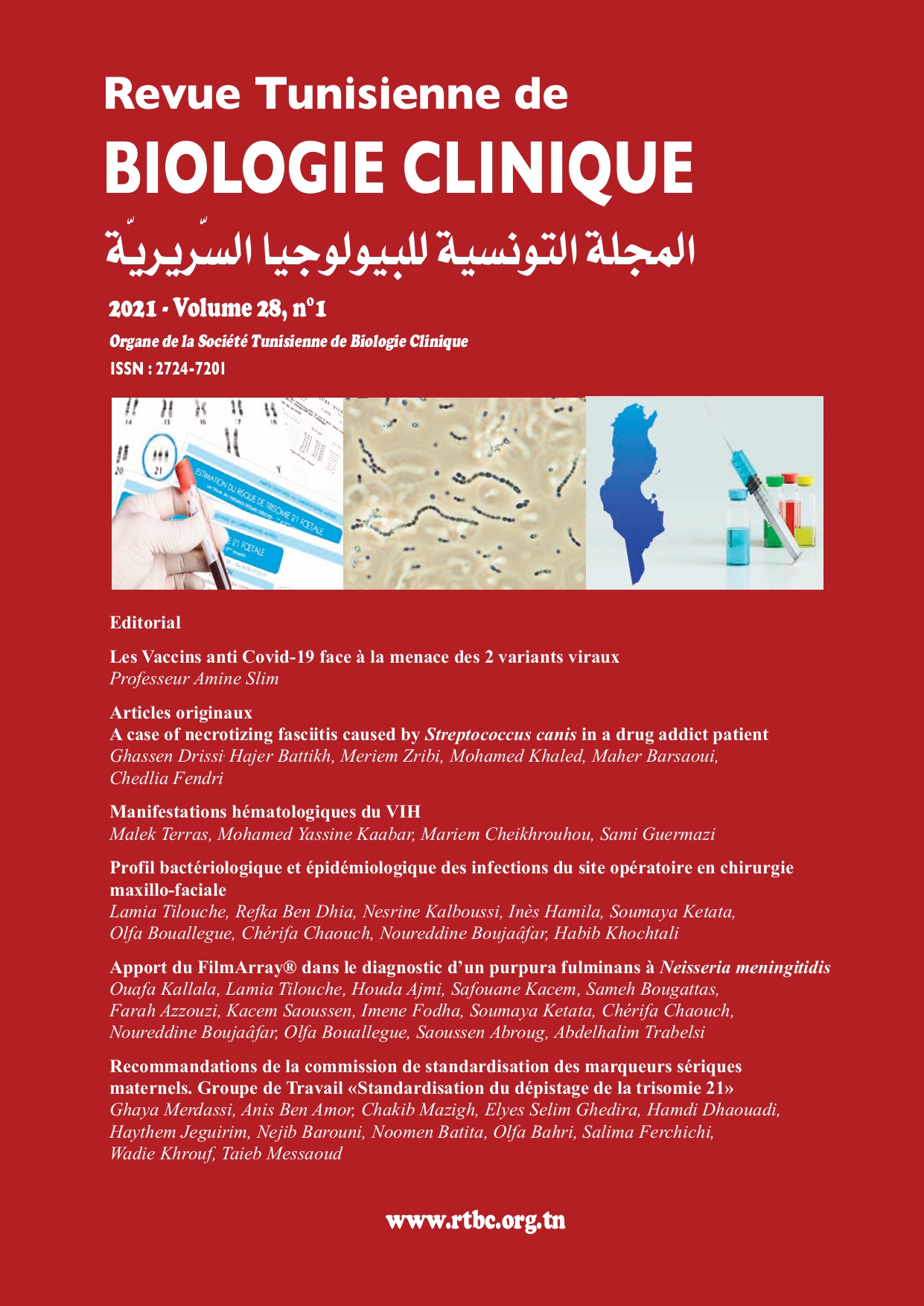Abstract
Introduction: Surgical site infections associated with maxillofacial surgery are rarely studied in Tunisia. The aim of our study is to describe the clinico-bacteriological profile and the epidemiological aspects of these infections. Methods: This retrospective, descriptive study was carried out on a 6-years period. We included all the infected samples collected from operated patients in the maxillofacial surgery department in whom a surgical site infection was suspected. Results: The patients included in the study had an average age of 59 years and were mainly male. Cancer (n=29) and tobacco use (n=27) were the most common conditions found in these patients. Among them, 75% underwent a carcinoma surgical resection. Overall, 68 bacterial pathogens were isolated. The Enterobacteriacae family was the most common isolated species (45.59%), followed by non-fermentative Gram negative bacilli (26.47%). All the Enterobacteriacae isolates showed 100% and 87% resistance respectively to ampicillin and amoxicillin- clavulanic acid. 10 Gram negative bacteria were multidrug resistant including; 9 enterobacteria strains among them 8 were resistant to third-generation cephalosporins and 1 resistant to ertapenem, in addition to 1 P. aeruginosa strain that was resistant to ceftazidim. The empirical prescribed antibiotic treatment was mainly amoxicillin-clavulanic acid and was ineffective in 74% of the cases. Conclusion: Surgical site infections encountered in maxillofacial surgeries require a standardized multidisciplinary medical care and an adequate prescription of empirical antibiotic treatment.

This work is licensed under a Creative Commons Attribution 4.0 International License.
Copyright (c) 2021 Revue Tunisienne de BIOLOGIE CLINIQUE

